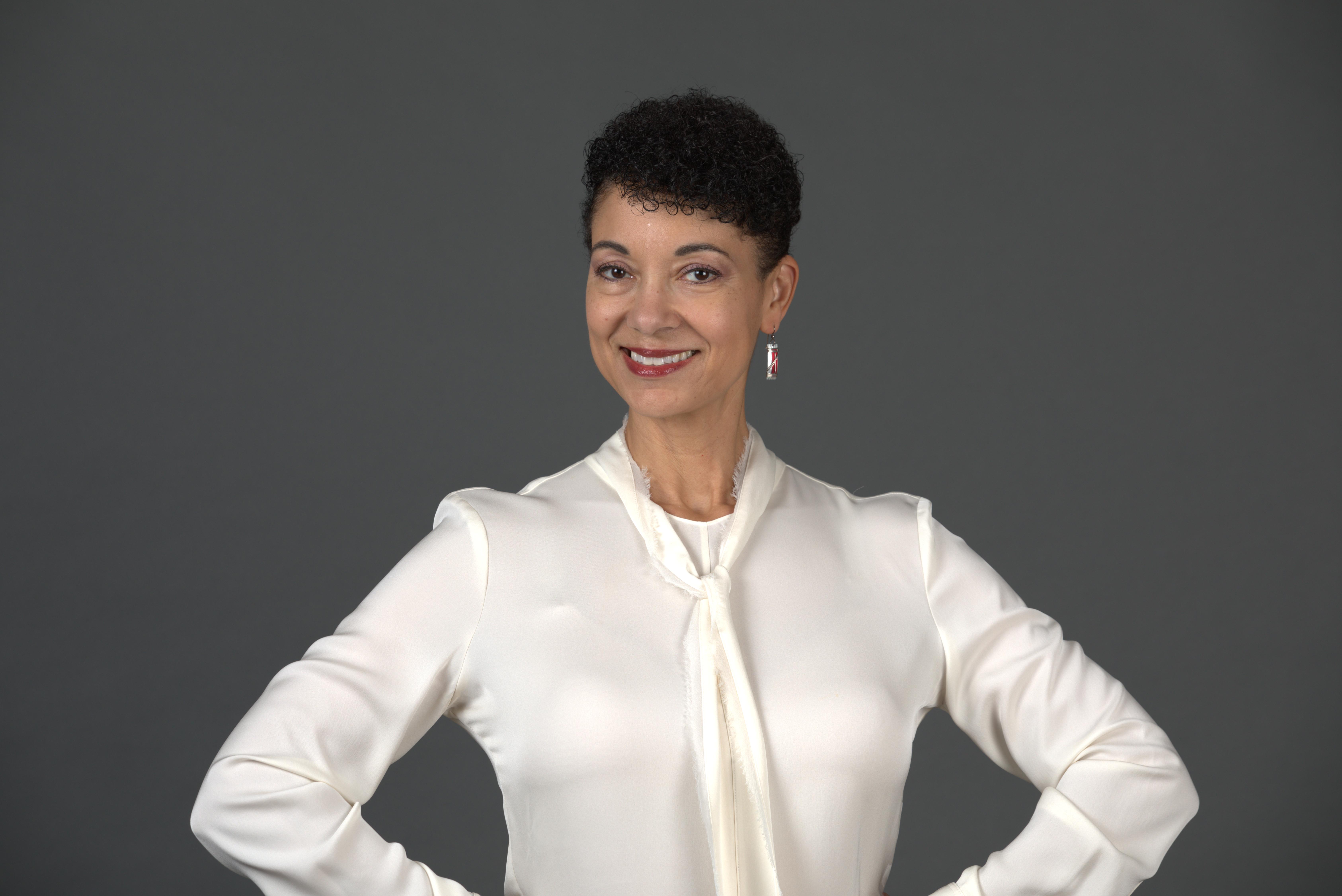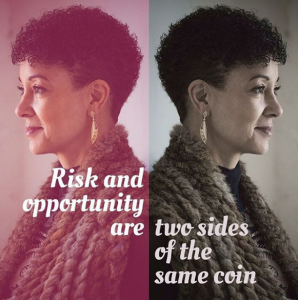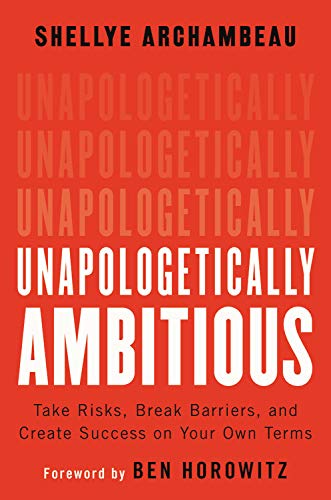 WOMEN IN TECH
WOMEN IN TECH
 WOMEN IN TECH
WOMEN IN TECH
 WOMEN IN TECH
WOMEN IN TECH
With black history month and International Women’s Day fresh on our minds, theCUBE speaks with one woman who has become a role model for overcoming the odds in the diversity-challenged world of the technology sector.
As a teenager, Shellye Archambeau had a big dream: to become a CEO. But in a pre-World Wide Web society, her role models were limited to the women in her neighborhood. She saw leadership skills in her mother, who was active in the school parent-teacher association, church groups, and the Girl Scouts. Competitiveness was a skill taught by being the oldest of four children. But the ambition that took her to business school and up the corporate ladder to a seat on the board of directors was all her own.
“I’m ambitious. I’ve always been ambitious,” Archambeau said.
She knew early on that she wasn’t going to be defined by how others saw her, instead making that disadvantage her career challenge. “What do I need to do to improve my odds?” she asked herself.
Archambeau spoke with theCUBE for a special Women in Tech feature on female executives and how they overcome the challenges posed by their gender and ethnicity to succeed in a field that is dominated by white males.
The strategy Archambeau has applied her whole career is “fake it until you make it.” While she presents as a self-assured woman, she confides that her confidence is not natural. “I was not born confident at all,” she said. “I just act like I am.”
Preparation is important to pull off this approach. “I try to do my homework before any situation so at least the things that can be known I know, and so I have a solid base of data, information and facts,” Archambeau said. “Then I put my shoulders back and hold my head high and walk in.”
Ambition, plus courage and intelligence, seem to be the secret to Archambeau’s rise. She started working as a sales assistant at IBM Corp. to finance her education at the highly ranked Wharton School of Business. After graduating with a bachelor’s degree in marketing and decision science, she decided to stay on at IBM … with the goal of becoming the company’s chief executive officer.
“CEO was really what I was shooting for,” she said. “When I joined IBM, I was, ‘Oh, well this is good company. I’ll just become CEO of this company.’”
She laughs at the memory, but her youth allowed her to see possibilities where others didn’t. “I wasn’t constrained by the reality of the challenge when I set my goal,” she said.
No journey comes without roadblocks and detours, and Archambeau is no exception. “Were there changes? Absolutely,” she said.
But she never lost sight of her main objective: to take her place on the executive board.
“I’ve been very intentional about what I’m about, what I’ve done, decisions I made, choices I made to try to improve the odds as I went along,” she said, advising others to do the same. “What I tell people is set a goal; make a plan to achieve the goal. If you come across a hurdle or roadblock or something you didn’t see, if you can’t figure out how to move it out of the way, then go over it, around it, and change course if you have to. But keep the goal in mind.
Archambeau achieved her goal — plus some. She currently sits on the board of directors for four major companies: Verizon Communications Inc., Nordstrom Inc., Roper Technologies Inc., and Okta Inc. She was the first woman of color appointed to the Okta board, adding another “first” to a career that has been marked by being the first woman, woman of color, or person of color to achieve a given position.
Climbing the career ladder can mean making some tough decisions, and Archambeau’s first major career coup was also the most courageous act she has ever undertaken. She had been seeking promotion internally at IBM and was offered the lead of the company’s Asian Pacific Public Sector. The role as general manager would kick her career up a notch, but meant that she, her husband, and their two school-age children had to move to Japan. Adding to the stress was the “pep” talk she received from her then boss, who had experience working in Japan.
 “There are three things that are important to be successful in business in Japan,’” she remembers him saying. “The first is wisdom … wisdom is age.” Archambeau was in her late 30s at the time, which was not old enough to have gained wisdom, according to her boss.
“There are three things that are important to be successful in business in Japan,’” she remembers him saying. “The first is wisdom … wisdom is age.” Archambeau was in her late 30s at the time, which was not old enough to have gained wisdom, according to her boss.
The next key to success in Japanese business culture, said her then-boss, was being male. “This is my send-off speech?” Archambeau recalled thinking. “I don’t have that either!”
However, she did have the third attribute: Intelligence. “You’d better figure out how to maximize it,” her boss advised.
Once again, Archambeau was facing odds that seemed stacked against her. “It was definitely, definitely a risk,” she said.
But the risk paid off. “I learned a lot; I made an impact. I helped turn around business over there,” she said. And in addition to the career boost, she and her family had “a great adventure.”
“I believe that people should take more risks, show more courage, and go after what they want,” Archambeau said.
And she has practical advice on how to gain the courage necessary to step up and take career risks. “The way you get the courage is to imagine what is the worst that can happen, and can you live with it?” she said.
Imagining the worst and dealing with it gives the power to overcome the fear. “You’ve envisioned it, and you’ve dealt with it. So now go ahead and take the risk,” she said.
Failure is the flipside of risk. When things go bad, it’s important to remember that there is a big upside to failure — the lessons it teaches. “There’s a lot more to learn in failure then there is in success,” Archambeau said. “And the biggest thing you learn is resiliency and that … it isn’t going to kill you.”
As her career took her from the East Coast to Japan, to a short stint as president of Blockbuster.com in Dallas, and onto Silicon Valley, Archambeau was fortunate to have a family that was willing to go along with her as she followed her dream to become a CEO.
“I was very fortunate to have a supportive family,” she said.
Along with her family, she credits her support network of cheerleaders with helping her to keep going when the going got tough. “I’m a big believer in having cheerleaders to help remind you when things are looking dire that you actually are capable and have talent and all those good things,” she said. “[A cheerleader] just helps balance all this stuff the world is throwing at you.”
Being able to turn to others for a confidence boost is more important for women because of the judgments they receive, according to Archambeau. She lists the physical assessments that women deal with on a daily basis: having to look young, be thin, be dressed correctly. But the judgement doesn’t stop there.
“If my husband walks outside with a wrinkled shirt, people think, ‘What kind of wife does he have?’ They don’t think, ‘What’s wrong with him?’” she stated.
Women are burdened with constant judgement in their personal lives and in their careers, according to Archambeau. At work they not only have to look the part, but act it as well, walking a fine line in a culture where assertiveness can be labeled as aggressive, ambition judged as pushy, and upper management is a club where girls aren’t welcome. “At the end of the day you’ve got all this, so you’re thinking, ‘I’m just not good enough,’” Archambeau said. “So, you need people around you to tell you to forget all that. To focus on what’s important.”
Other women executives agree. Gaining a seat on a board of directors resulted in an “aha” moment for Geeta Schmidt, chief executive officer of Humio Ltd. “I realized I probably need my own personal board, my own sort of support infrastructure,” she said.
Having this support network outside of her work-related contacts has been important, as the focus is on the person not the company, Schmidt explained.
After stepping down from her position as CEO of compliance management and security solutions company Metricstream Inc. Archambeau turned her focus to helping others who share her dream of heading a company.
“So many people never get the opportunity to truly leverage all they’re capable of,” she said. “I want this next generation to have the ability to capitalize on their full sets of capabilities.
One way she shares her knowledge and experience is through her writing. Her inspirational memoir, “Unapologetically Ambitious: Take Risks, Break Barriers, and Create Success on Your Own Terms,” is due for release in October and can be pre-ordered on Amazon.com.
Social media is another channel through which Archambeau reaches out to answer questions and share her knowledge. She is active on Twitter, and her livestreamed “Ask Me Anything” sessions provide a forum where aspiring executives can ask questions on anything work or life related. When the live session is over, the videos are posted to view on her YouTube channel.
“Many times, what people are struggling with, what their questions are, other people have the exact same issues, the exact same questions or can learn from the same points,” Archambeau said.
“There’s never been a better time for female tech entrepreneurs,” Archambeau said in an opinion piece for Xconomy magazine. This is because women rank highly in the soft skills that are in such short supply.
“CEOs around the world agree that there is a talent shortage … and, by the way, that’s a major risk to their businesses,” she said. “And if you look at the skill sets that they now value … they’re actually skill sets that involve collaboration, communication, team leadership, and building. … And guess what? Women tend to over index on those skills.”
Read more of theCUBE’s women in tech features here.
Support our mission to keep content open and free by engaging with theCUBE community. Join theCUBE’s Alumni Trust Network, where technology leaders connect, share intelligence and create opportunities.
Founded by tech visionaries John Furrier and Dave Vellante, SiliconANGLE Media has built a dynamic ecosystem of industry-leading digital media brands that reach 15+ million elite tech professionals. Our new proprietary theCUBE AI Video Cloud is breaking ground in audience interaction, leveraging theCUBEai.com neural network to help technology companies make data-driven decisions and stay at the forefront of industry conversations.